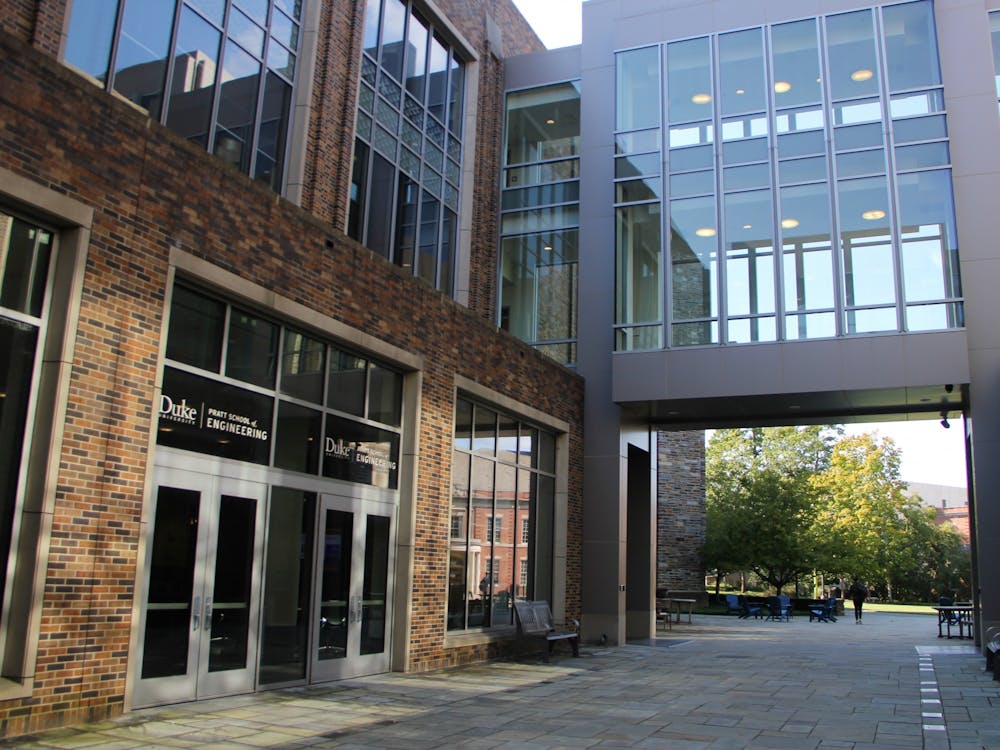The Student Organization Finance Committee rejected $71,000 out of $100,000 student organization funding requests in late March, forcing some groups to limit their programming due to insufficient funds.
SOFC, a committee within Duke Student Government, is responsible for allocating an annual budget of $1,000,000 to over 350 undergraduate student organizations.
Sophomore Tyler Harris, co-founder of Duke Drone Racing, said his club requested SOFC funds to attend the Collegiate Drone Racing Association’s National Championship. Harris attended the office hours of an SOFC representative on March 22 to see if his club qualified for funding.
In their meeting, Harris said the representative told him that SOFC “stopped having briefings or funding meetings for trips specifically for student groups two weeks ago” and that “there was no more funding for group travel anymore this semester.”
SOFC did not respond to The Chronicle’s request for comment on whether the organization is no longer accepting certain funding requests and whether student groups have been told they can no longer apply for such funding.
After the funding request was denied, Duke Drone Racing paid for flights and lodging itself. Club members will also pay for event registration, food and a rental car, which Harris says has limited the number of people the club can afford to bring.
Sophomore Katherine Chen, co-president of the Duke Taiwanese-American Students Association, believes that SOFC has become stricter by requiring student organizations to provide invoices with their funding requests. Chen believes “they’ve been enforcing [the rule] more within the last few weeks.”
Chen noted that her organization was not informed about the rule that funding requests had to come in two weeks before an event, which led TASA to cancel two of its events this semester. TASA did not submit their funding request in time for its first event and was not able to send an invoice on time for the second event, Chen said.
Chen believes her experience with the funding process could improve if SOFC set “clear dates and deadlines” to notify student organizations about their funding requests.
Policy changes
SOFC’s funding cuts follow three DSG closed executive sessions since Feb. 22. The first executive session arose from an impromptu vote after a senator raised concerns about the extent of remaining SOFC funds.
SOFC announced in a Feb. 29 DSG meeting that it lowered lunch and dinner allocations by $2 per person in certain funding requests, attributing the change to an influx of funding requests for events after spring break.
SOFC representatives stated March 6 that it had saved $4,800 in funding to student groups by reducing meal allocations. During the meeting, the senate also held two separate planned executive sessions, at least one of which was to discuss “financials.”
In DSG’s March 27 meeting, DSG SOFC Liaison Ariella Ruiz addressed the $100,000 in SOFC funding requests from that week, of which SOFC allocated $29,000. In March 2023, SOFC received only $30,000 in total requests.
Ruiz announced that SOFC plans to review its policies and guidelines through April and will accept senator feedback throughout the process.
SOFC Chair Ayanna Chatman, a junior, did not respond to The Chronicle’s requests for comment about how SOFC deliberates on large funding requests and how such deliberations have differed from past years.
Checks and balances
The DSG senate must approve SOFC-recommended allocations above $1,500. Each senator has the option to vote for or against the proposed allocation. Senators can also vote to table the matter, abstain or excuse themselves due to a conflict of interest.
First-year senator Olivia McConnell and sophomore senator Dylan Cawley do not recall DSG voting down any SOFC-recommended allocations this year. However, they say there have been instances in which legislation was tabled and modified collaboratively by SOFC and the affected student organization.
McConnell, a member of the DSG academic affairs committee, described her thought process when voting on legislation.
“I start with the working assumption that SOFC [officers] are phenomenal at their jobs and that they have an exorbitant amount of financial expertise,” McConnell said.
If SOFC recommends a total allocation, McConnell considers whether the allocation is within the budgetary code. If SOFC suggests a cut, McConnell determines whether the event can still function to the required caliber. If the answer to these questions is yes, McConnell votes to move forward. If not, she will motion to start a debate.
“Usually by the time we’ve asked all of our questions, the concerns are mediated,” she said. “If not, then we always have the opportunity to send it back, have it revised and vote on it again.”
McConnell said she has voted against proposed allocations “a few” times. She noted that she participated in one debate concerning why a student group chose to fly to Washington, D.C., rather than take a less expensive bus.
“By the time we were reviewing the funding allocation, the flight logs were already in place,” she said. McConnell voted to continue with SOFC’s recommendation to revisit the question in the next fiscal cycle.
McConnell claimed that, in general, if an event occurs shortly after the senate meeting, she is “more inclined to vote yes” on SOFC’s recommendation.
Cawley, a services and sustainability committee member, occasionally attends SOFC meetings.
“They’re a lot longer than the DSG meetings I’ve been a part of,” he said. “They’re incredibly thorough about making sure every group gets the funding they need … as well as making sure they can distribute funds equitably between different groups.”
Cawley does not recall ever abstaining from or voting against a funding request. He noted that senators often ask whether SOFC has entertained a “cheaper program” or “alternative transportation route.”
Cawley said he believes any legislation that does not meet allocation requirements would never be considered for a vote in the senate.
“Generally, most senators will usually vote yes,” he said. “That’s just because, historically, SOFC does a really, really thorough job of reviewing each request.”
Get The Chronicle straight to your inbox
Signup for our weekly newsletter. Cancel at any time.

Michael Austin is a Trinity sophomore and managing editor of The Chronicle's 120th volume.

